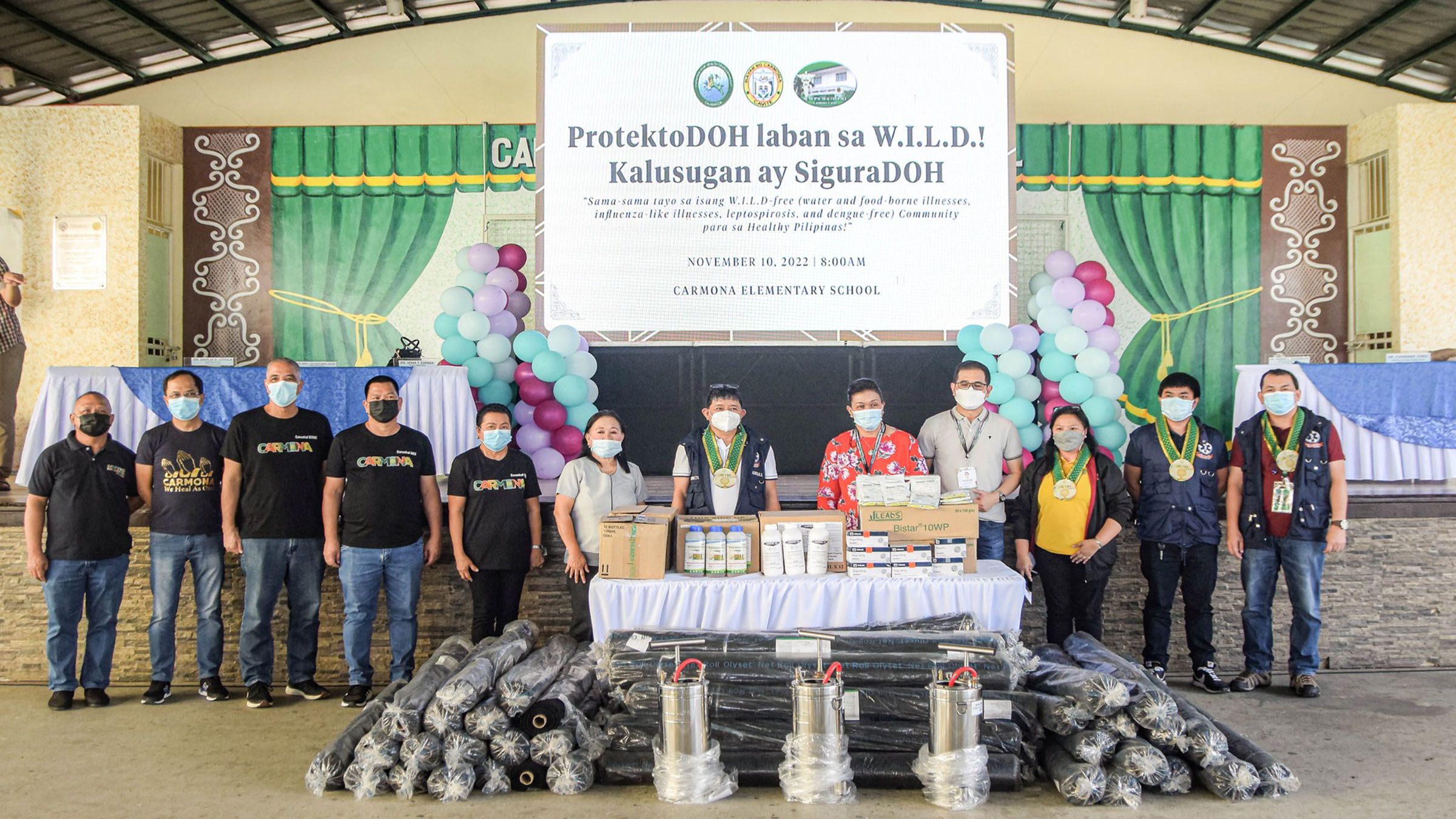During the recent typhoons that hit the Philippines, the Department of Health stepped up its campaign against WILD diseases.
The Department of Health (DoH) increased its effort to prevent an outbreak of water-borne illnesses in the region due to the alarming increase of WILD diseases in Calabarzon.
WILD is an acronym for “water-borne diseases, influenza, leptospirosis, and dengue” that usually come with the rainy season, Inquirer reported.
“The DOH-Calabarzon has strengthened its campaign against WILD diseases in the region to prevent an outbreak,” DOH-Calabarzon Health Education and Promotion Unit said.
From January 1 to November 5, the DoH-Calabarzon recorded 12,734 influenza-like illness cases (34.4 percent), an increase from the previous year's data. There are also 21 deaths recorded this year.
Meanwhile, dengue cases in the last 10 months reached 20,706, which is a 152 percent increase, with 40 fatalities.
Leptospirosis cases increased to 155, which is a 53 percent increase, with 16 fatalities.
DoH also recorded 271 cases of acute bloody diarrhea, a 282-percent increase from 71 cases last year, with one death, and 571 cases of typhoid fever, a 242-percent increase from the same period last year.
Dr. Ariel Valencia, Director for DoH-Calabarzon, explained that WILD diseases are always a threat, year in and year out.
“Kasi ang lepto [leptospirosis], as it is, endemic iyan eh. Ang binabantayan natin ay iyong magiging epekto niyan sa tao mismo. Once na magkaroon ng lepto [leptospirosis], maka-recover ba siya o maging fatality? Kaya critical ang early detection and early diagnosis,” Valencia said.
Because of the recent typhoons hitting the country, DoH-Calabarzon encourages the public to seek medical attention and be aware of WILD diseases through the “KonsulTayo Campaign.”
Additionally, the agency strengthened its partnership with local governments across the region.
The renewed campaign started in Carmona, Cavite on Thursday.
DoH asserted that it provided anti-WILD diseases equipment and other medical supplies to local health workers, including insecticide spray cans, larvicides, insecticide-treated screens, dengue NS1 rapid diagnostic tests, antigen and antibody tests, oral rehydration salt, and paracetamol.
Because WILD diseases are more common during the rainy season, the Philippines is more likely to contract the various diseases that accompany the weather.
Due to recent typhoons, flooding can be found in several parts of the country.
Leptospirosis is typically contracted by wading in floodwaters tainted with animal urine, particularly of rats.
The rainy season also increases the population of Aedes aegypti, the mosquito vector of the dengue virus.
Influenza, or the common flu, is a year-round disease that is also highly contagious but typically peaks during the rainy season.
Children, the elderly, pregnant women, and people with weakened immune systems are more likely to develop serious complications if infected.
Tags: #DoH, #WILD, #Rainy
